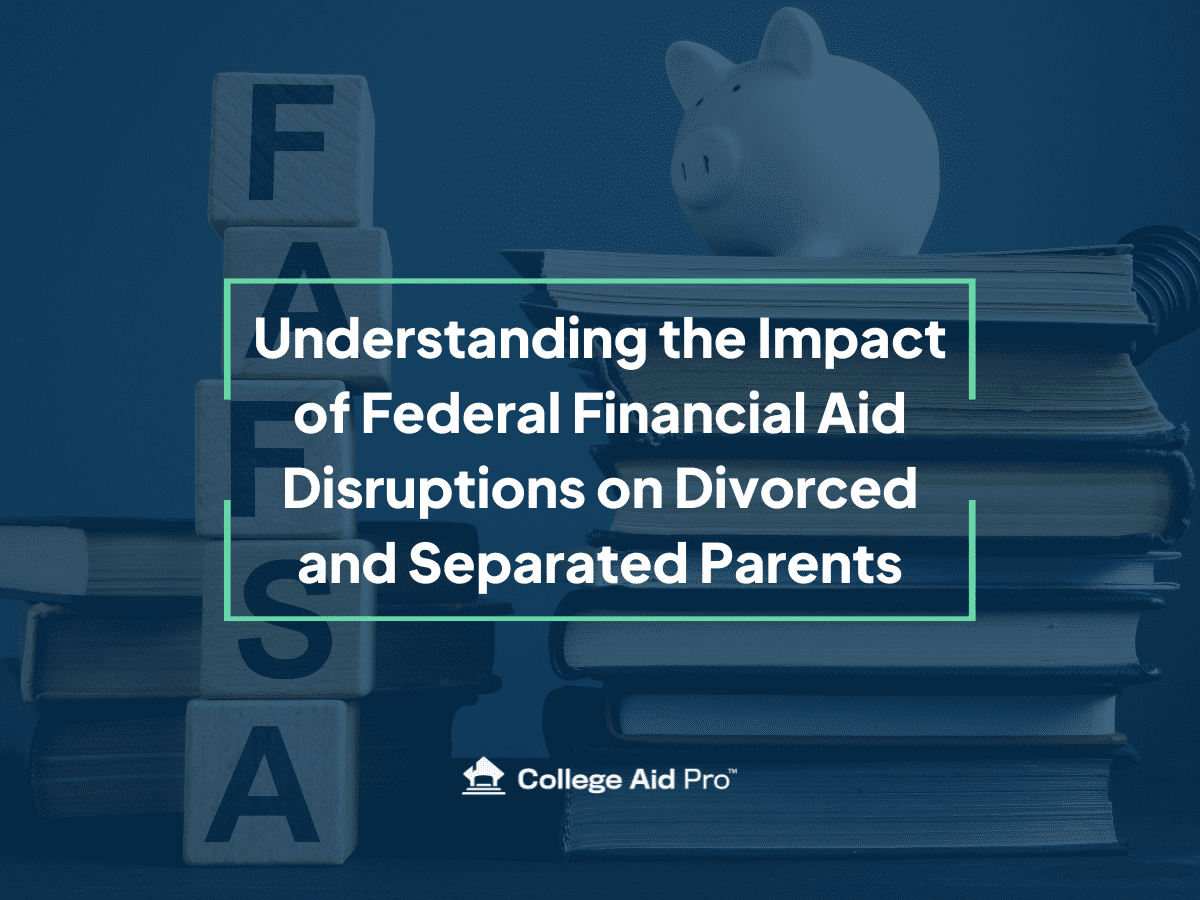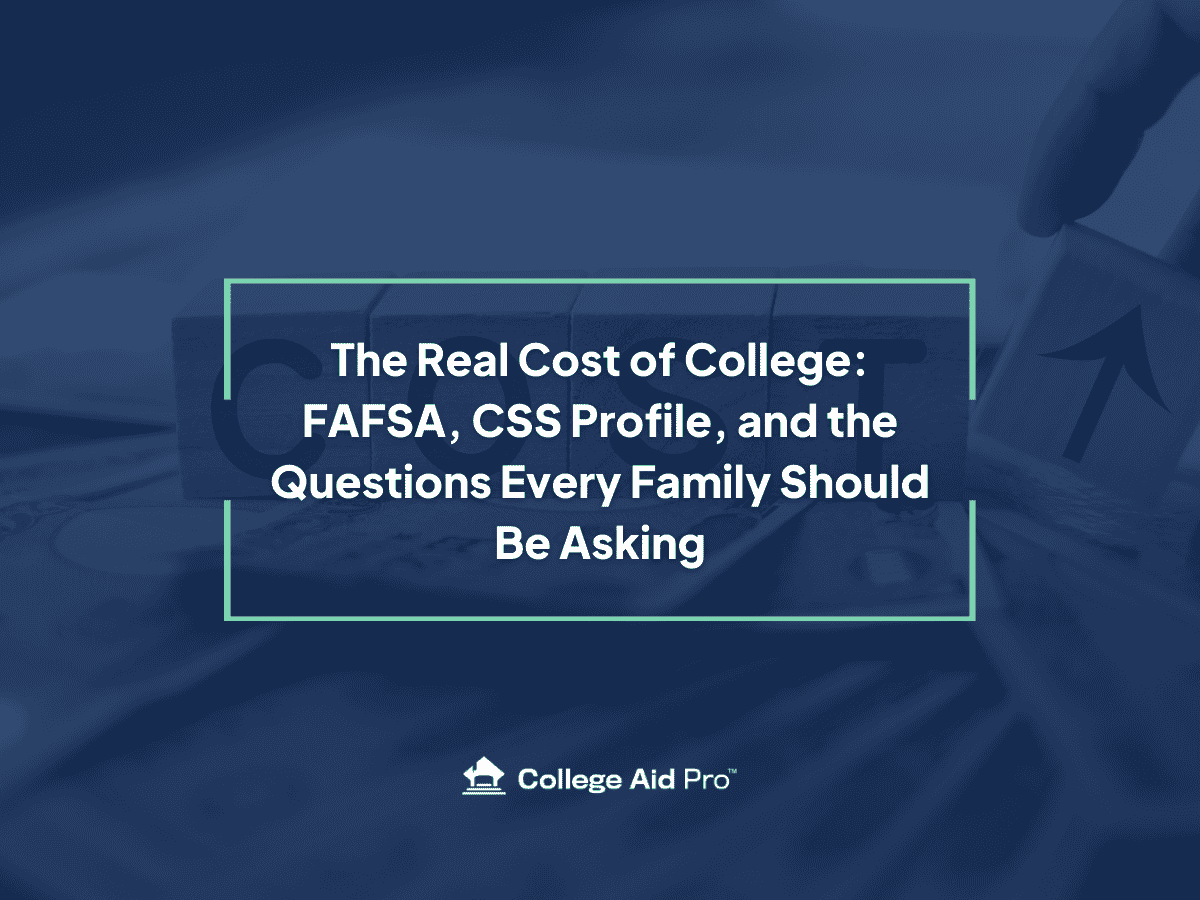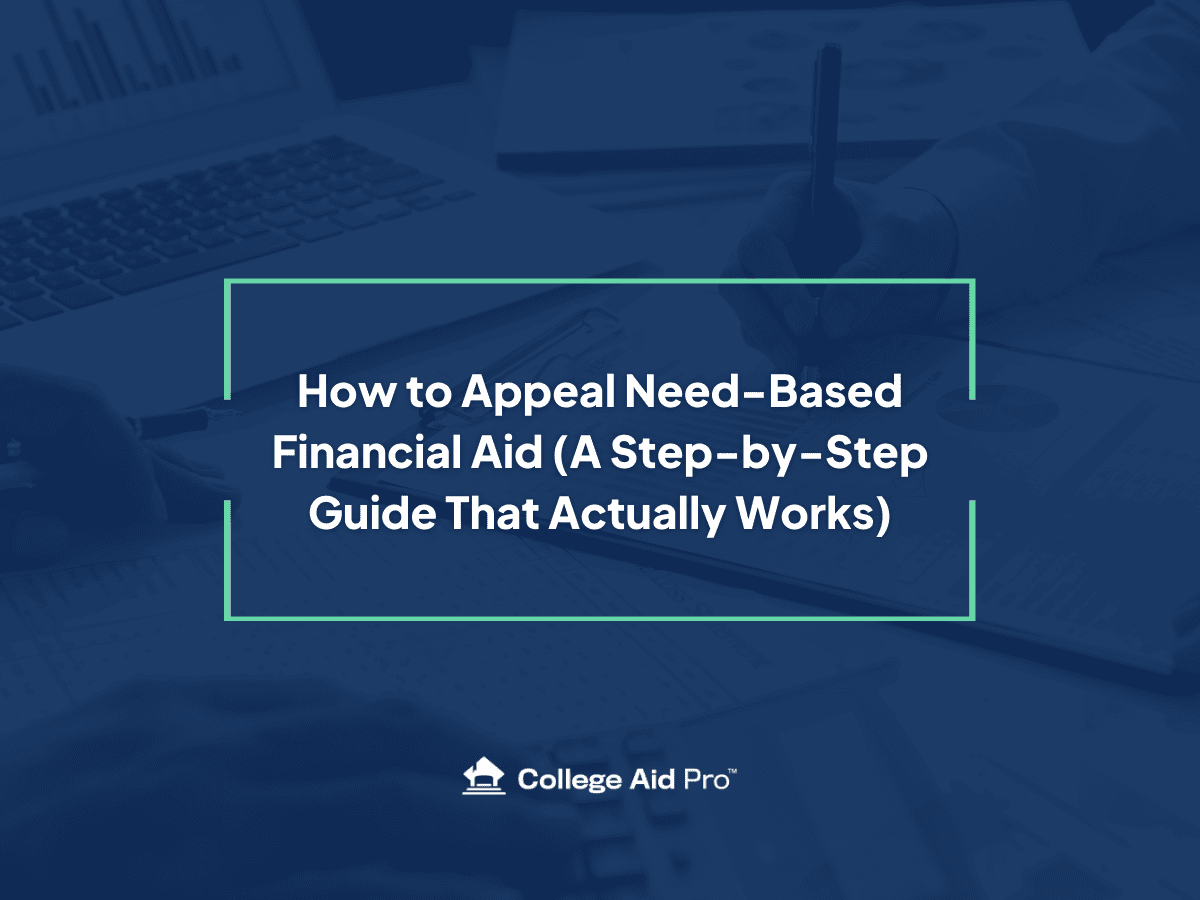Understanding the Impact of Federal Financial Aid Disruptions on Divorced and Separated Parents
For divorced or separated parents, the financial aid process can already feel overwhelming. The complexities of the Free Application for Federal Student Aid (FAFSA) can add a layer of stress, particularly when it comes to determining who should report their income, and how to handle financial aid if disruptions occur. With the potential for government shutdowns, budget freezes, or changes in federal funding, the uncertainty surrounding financial aid becomes even more complicated.
The FAFSA is an essential tool for determining a student’s eligibility for federal financial aid, but delays in processing could create additional hurdles for families, especially those with complex custody arrangements. Here’s what divorced or separated parents need to know about how funding disruptions could affect their ability to plan and pay for college.
What Happens If FAFSA Processing Is Delayed?
For divorced or separated parents, submitting the FAFSA is a critical step in securing financial aid for their children’s college education. FAFSA helps determine eligibility for financial aid programs like Pell Grants, federal student loans, and work-study opportunities. If the Department of Education experiences delays—whether due to a government shutdown or funding freeze—it could cause a domino effect that leaves families in a state of financial uncertainty.
One of the most significant issues that can arise from a delay in FAFSA processing is the uncertainty around when a student will receive their financial aid package. Without knowing the aid amount, families are left in limbo, unable to plan ahead for tuition payments, books, housing, and other expenses. The financial aid award is often a critical component of college funding, and without it, parents may struggle to meet deadlines or arrange alternative funding sources.
Moreover, because the FAFSA process is time-sensitive, a delay in processing could also interfere with meeting early enrollment deadlines or securing on-campus housing. For divorced or separated parents, the delay could exacerbate an already stressful situation, as they work to coordinate finances between two households.
Why Does the Custodial Parent Rule Matter?
One of the most confusing aspects of the FAFSA process for divorced or separated families is the custodial parent rule. According to the guidelines, only the income of the custodial parent—defined as the parent with whom the child lived the most during the past 12 months—should be reported on the FAFSA. This rule can be particularly tricky in situations where custody arrangements are shared or unclear, or when the custodial parent’s income is impacted by temporary employment, child support, or spousal support payments.
If the FAFSA processing is delayed or complicated due to disruptions in federal funding, this could add confusion to the custodial parent rule. For instance, a delay in confirming which parent’s financial information should be used could result in an incorrect or incomplete FAFSA submission. This can further delay the financial aid process and lead to complications when determining a student’s eligibility for financial aid.
To avoid these potential issues, it is essential for divorced or separated parents to have clear and up-to-date documentation regarding custody arrangements. This includes having official court orders or agreements that outline custody details, as well as understanding the Department of Education’s specific requirements for reporting income. Keeping open communication with the school’s financial aid office can help ensure that the correct parent’s information is used and that no unnecessary delays occur.

How Can Divorced and Separated Parents Prepare?
While the possibility of a delay in federal financial aid processing can be nerve-wracking, there are several steps divorced and separated parents can take to prepare for potential disruptions.
- Submit FAFSA as Early as Possible:
The best way to minimize the risk of delays affecting financial aid is to submit the FAFSA as early as possible. Federal financial aid operates on a first-come, first-served basis, meaning that the earlier you submit the FAFSA, the better your chances are of receiving aid before tuition payments are due. Early submission also gives you more time to address any potential issues or delays, whether that involves clarifying custody arrangements or providing additional documentation.
It’s important to keep in mind that if the FAFSA is delayed, it might not only affect federal aid, but it could also disrupt eligibility for institutional aid from colleges or state-based grants. Submitting the FAFSA early provides a buffer in case processing is delayed, allowing families to receive their financial aid packages in time to meet other critical deadlines.
- Stay in Close Contact with the Financial Aid Office:
Communication is key when it comes to navigating financial aid disruptions. It’s important to establish a clear line of communication with the financial aid office at your child’s school, especially if you anticipate potential delays. Schools can offer advice on how to proceed, provide guidance on any backup documentation needed, and help families navigate any unexpected roadblocks.
If delays do occur, the financial aid office may be able to extend deadlines or offer alternative solutions to ensure students are still eligible for financial aid. Some schools have emergency funds or other forms of temporary financial assistance that can help cover tuition or living expenses in the interim. Maintaining regular contact with the office can help ensure that your family is kept up to date on the status of your application and give you peace of mind during an uncertain time.
- Explore Backup Funding Sources:
While federal financial aid is an essential component of college funding for many families, it’s wise not to rely solely on it. In the event that FAFSA processing is delayed or disrupted, it’s important to have backup funding plans in place.
Start by researching private scholarships available to your child based on academic performance, extracurricular activities, or financial need. Many local businesses, nonprofit organizations, and community groups offer scholarships that can help offset the cost of tuition. Private scholarships often have different timelines than federal aid, so it’s important to research opportunities early and apply as soon as possible.
Additionally, consider exploring alternative loan options, such as private student loans or parent loans, which can be used to fill gaps in funding if federal loans are delayed. Keep in mind that private loans often come with higher interest rates, so it’s important to weigh the pros and cons before committing to these options.
- Maintain a Flexible Financial Plan:
Having a flexible financial plan will be key to handling disruptions in the financial aid process. If your family relies heavily on financial aid to fund your child’s education, consider creating a contingency budget to account for any short-term gaps in funding. This might involve having a line of credit available, borrowing from savings, or exploring other financial resources that can help bridge the gap.
By remaining flexible and proactive in your approach, you can minimize the financial strain caused by any delays in federal aid processing.
Conclusion
Disruptions in federal financial aid processing can be a source of significant stress for divorced and separated parents. However, with the right strategies in place, families can navigate the challenges and ensure that their child’s education remains affordable. By submitting the FAFSA early, staying in close contact with the financial aid office, exploring backup funding options, and maintaining a flexible financial plan, you can reduce the impact of delays and disruptions.
Being proactive and informed is crucial to ensuring your child’s college education remains on track, no matter the challenges that arise. For more guidance on navigating the financial aid process and exploring funding opportunities, reach out to College Aid Pro for personalized support and advice.
Stay tuned by subscribing to our podcast for more updates as policies evolve, and remember: knowledge is power when it comes to making the best choices for higher education.



